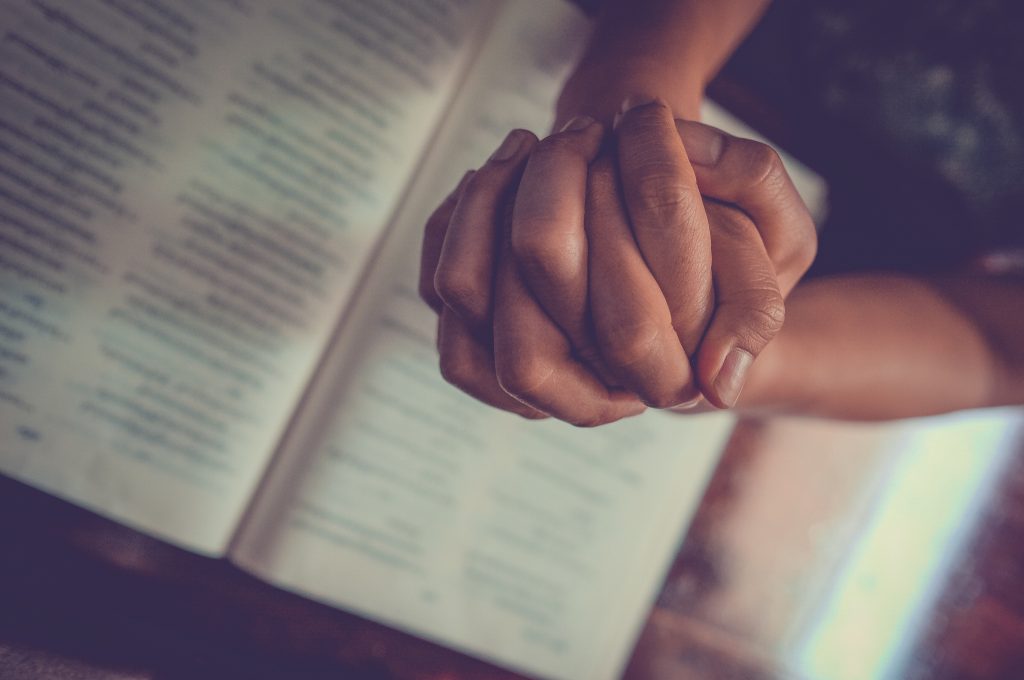“If you know anything about the Liturgy of the Hours, the general impression is: that’s what priests do. Partly that’s right, because priests, monks, and nuns are obligated. But the Church has made it clear, especially since the Second Vatican Council, that all of us should consider integrating that into our prayer life.”
Daria Sockey’s mission is to help us do just that: take the prayers of the Liturgy of the Office, recited faithfully throughout the history of the Church, and integrate them into our daily prayer lives. In her book “The Everyday Catholic’s Guide to the Liturgy of the Hours” (Servant Books, $13), she gives us the history and meaning behind these prayers, and helps us find the time to add one or two — or all of them — to our days.
Kris McGregor: Is praying the Liturgy of the Hours really for the everyday Catholic?
Daria Sockey: The recent popes seem to think so! I know Pope Benedict XVI said a few years back that he was hoping every Catholic would be familiar with the Liturgy of the Hours. Thanks to the many online and mobile app versions of the breviary, it’s really easy to do so.
McGregor: How did you get started?
Sockey: I did a semester abroad program in Spain, sponsored by a Catholic college. Our chaplain started offering night prayer, “complens,” from the Liturgy of the Hours. One night I said I would do it, and I discovered that night prayer is some of the most lovely and consoling and beautiful psalms and prayers. They had this wonderful, restful character, like bedtime prayers.
When I got home, I got my first breviary and experimented with adding in the other liturgical hours. Sometimes I would drop it for a few months, but I would always get back to it. It’s the kind of prayer that works best for me.
McGregor: It’s hard to sustain a Catholic light in the world because of work, or our communities; sometimes we don’t have access to daily Mass. Does this help?
Sockey: The Liturgy of the Hours is in a whole class of prayers by itself, with the Mass. It’s liturgy, and that means it’s the public prayer of the Church. When you’re doing it, you’re not just saying your own little thing for your own intentions, you are connecting yourself to this universal worldwide prayer going on around the globe, all hours of the day. You are praying on behalf of the Church.
McGregor: Can you give us an understanding of each part of the prayers?
Sockey: It takes maybe 10, 12 minutes to pray morning or evening prayer, maybe five minutes to pray daytime prayer.
Each of these has a couple of psalms and a biblical canticle, Old Testament mostly. So there’s these three sections that you pray. Each one is preceded by an antiphon, which gives you the key thought that you should be dwelling on as you pray the psalm. After that, there’s a short biblical reading, maybe one or two sentences, and there’s usually a very lovely key truth taught in that little reading.
You go from there to a short responsory prayer, and then one of the Gospel canticles, either the Magnificat of Our Lady in the evening, or in the morning you’d get the Benedictus, the prayer that Zachariah prayed at the birth of John the Baptist.
After that, there’s a little list of petitions, like the prayer of the faithful at Mass. Every day, you get these opportunities to pray for things you might not normally think to pray for, but you should: for the pope, the souls of those who have died, our bishops and priests, the poor, the sick.
Once you see these main parts, and they all have a purpose, it draws it all together, and you see that what you’re doing is just something really wonderful.
McGregor: It’s a discipline, isn’t it? The consistency of doing it every day, the faithfulness in doing it even on those days when you don’t feel like you want to, and you do it anyway. That’s where we get tremendous graces.
Sockey: You can’t just wait for the mood to strike you when you feel like praying. This applies to whatever routine of prayer we impose on ourselves. If we only do it when we’re in the mood, we’re not going to end up doing it very often at all.
That’s why the Church obliges us to go to Mass on Sunday. Most of the time we want to go, but there are those days where we think, do I have to? Yes, you have to! And that’s a good thing.
Even if, on a given day, you’re distracted, you’re spiritually dry, it’s not about you. God speaks to you this way, but it’s about God. It’s this great, wonderful duty of offering the sacrifice of praise. The faithfulness itself, the act of will, is a prayerful act, over and above what we are feeling about it on any given day.
In heaven, they’re still chanting the praises of God. There’s this eternal symphony going on, and this is your chance to add your own pathetic little squeak of a voice. In doing so, your squeak becomes a beautiful thing.

